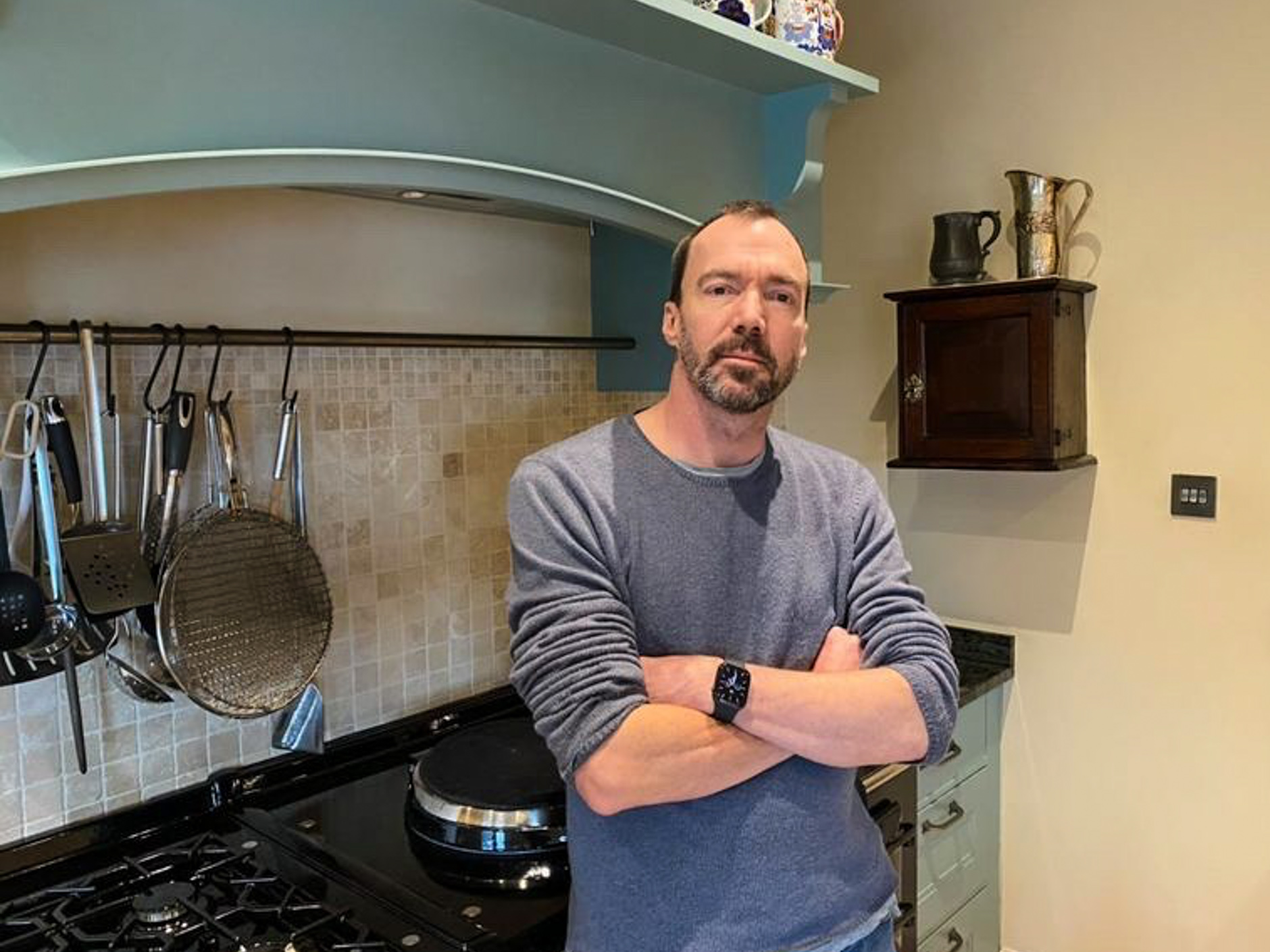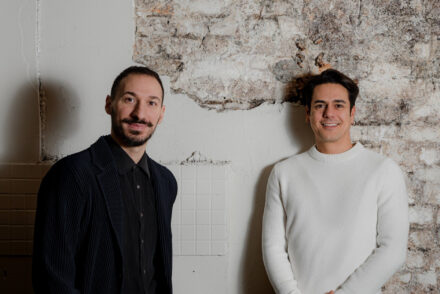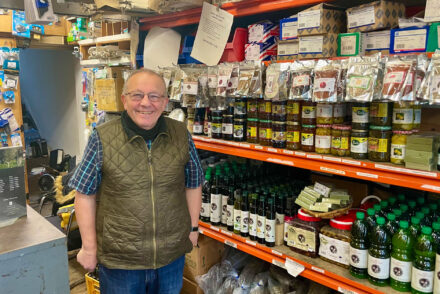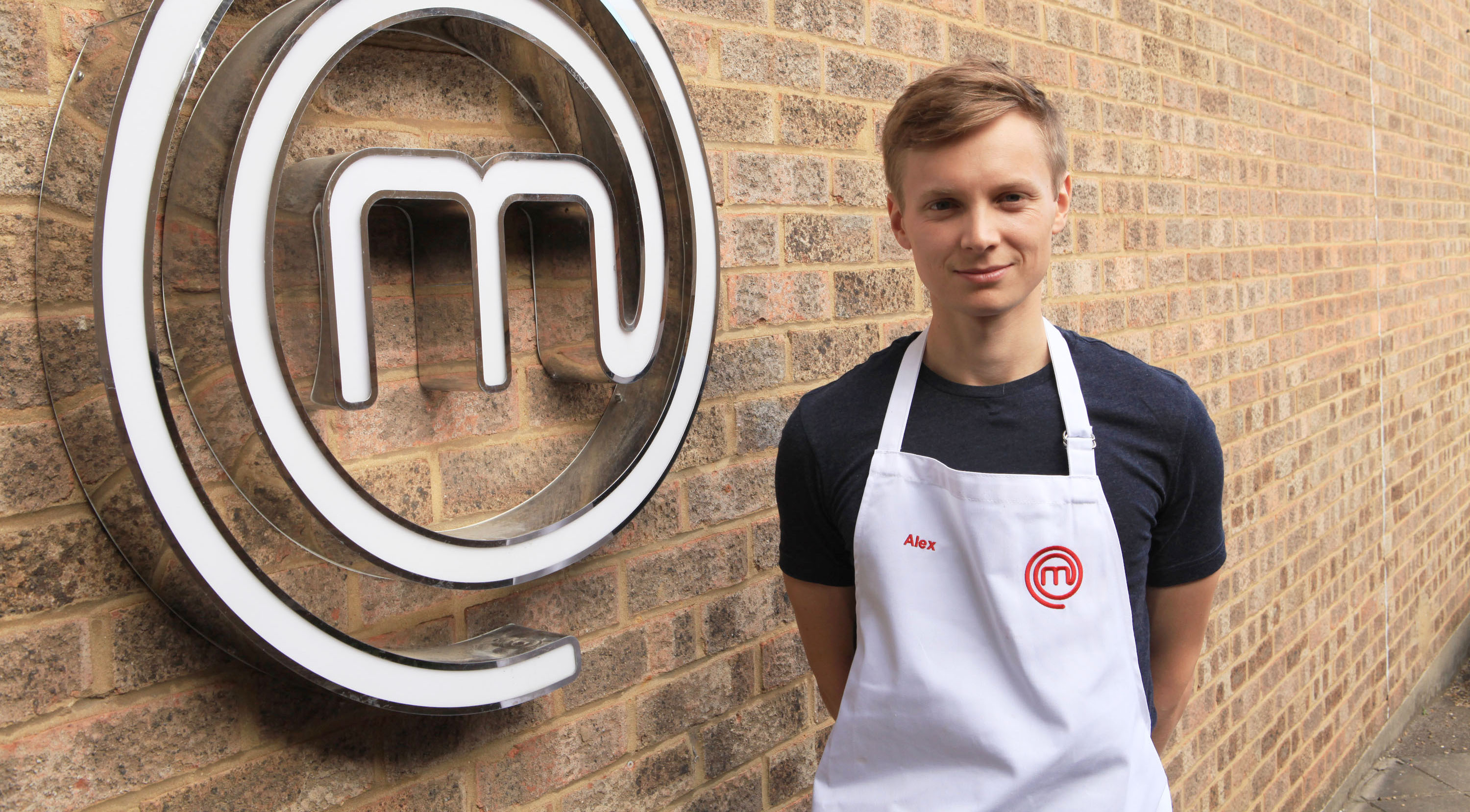Nick Gibson is the owner of The Drapers Arms in Islington, a popular neighbourhood pub and restaurant renowned for its carefully-curated, keenly-priced wine list and legendary Sunday roasts.
Contributing writer Amanda David (AD) caught up with Nick (NG) over a leisurely bottle of Patatsfontein Chenin Blanc 2018 to chat about the hospitality industry, charity dinners, memorable dishes from London’s hottest new restaurants and what the future may hold.
AD: You’ve just had your annual Valentine’s Day dinner at The Drapers Arms in support of Refuge, the charity against domestic violence – how did it go?
NG: It’s not like Too Many Chefs or other events when we are hosting a charity dinner; other than customers donating rather than paying us for the meal, it’s a normal evening. There’s no special menu, no change to the prices. There’s an artifice to Valentine’s Day; it’s very performative and an obligation rather than a choice, which is partly why we don’t make a big deal out of it. We raised over five thousand pounds for Refuge, though, which was good. I do feel that if I want to be an ally I need to actually do something to change things. I think people get the juxtaposition, that on this day women are told they are loved, and wined and dined, yet two women a week (in England and Wales) die as a result of domestic violence.
AD: There must have been a particular need for the charity during the recent lockdowns?
NG: Absolutely. We donate 100% of the proceeds which means that every single penny spent in the building goes to the charity. I had to look at whether it was affordable this year but the answer was always going to be yes. Unfortunately, when people were told to stay at home to be safe from Coronavirus, that actually meant many were much less safe. It’s awful that your own home, which should be the one place you can relax, could be a source of fear and not comfort.
AD: I read somewhere recently that you have a zero tolerance policy for inappropriate comments or banter in the workplace, be that from customers or colleagues?
NG: I think that was about a couple of chefs who made some comments to members of my front of house team that made them uncomfortable. Humour is extraordinarily subjective and I feel very strongly that you shouldn’t have to be able to take a joke to do your job. It’s difficult, because we’re definitely not humourless; it’s a very friendly place, the customers are generally lovely. I want the kitchen and the front of house to get on but the emphasis always has to be on the side of safety and inclusivity, of being seen. Frankly, anything described as “banter” is probably a bit suspect anyway.
AD: Do you think this is a particular issue in hospitality?
NG: It’s basically about boundaries. For example, my General Manager got engaged last week while they were on holiday. I said, ‘Oh, nobody told me,’ and the answer was ‘Well, it’s all over their Instagram’. I don’t ever follow my staff on Instagram, I think it’s really important to have distance. I don’t mind if they follow me, some of them do, but whether I like it or not there is an inevitable power structure when you work together and I need to be aware of that.
That said, I’m very uncomfortable about the portrayal of the industry, as depicted in films like Boiling Point, as being a place where abuse of various forms is just an accepted part of the job; work hard, play hard, endless drink, drugs and sex – it’s not like that and it shouldn’t be like that. Given that background I think it is hyper-important to say that this is not a space where inappropriate behaviour is okay. Regardless of anyone’s previous experiences in other kitchens, I am really clear about what is expected here.
One thing I always tell my staff is to try to be the best version of yourself you can be in every circumstance; keep learning, keep improving
AD: You mentioned Too Many Chefs, your annual event for Action Against Hunger (AAH). How did that come about?
NG: I think there’s a natural bridge of empathy between people who spend their lives feeding people because they realise how much joy it gives and those who can’t feed their children. We deal in plenty and generosity here; it’s about eating as a social activity, a source of pleasure and comfort. AAH organises fundraising trips with journalists and chefs; the first one I went on, which was a cycling trip around India, was with Ben Maschler who was my business partner at the time. He was an extraordinary ambassador for AAH and raised hundreds of thousands of pounds for them.
One of the things I love about running this pub is being a part of the food community and getting to know chefs and other hospitality professionals, so Ben and I thought it would be fun to run an event to help raise sponsorship for the trip. We came up with the idea of ten chefs, ten courses, and it was a huge success and became part of our calendar. It’s really, really good fun and a chance for the hospitality industry to accept a role in giving back and dealing with inequality.
I’m very aware and cautious of the white saviour narrative but then look at the AAH website; it’s an absurdly small amount of money they need to literally save a life. Like the other things we’ve been talking about, it shouldn’t be needed; there is so much capacity to feed the world. Now we’ve turned on a tap for that amount of fundraising each year it feels amoral not to continue. Ultimately as a business we give up a day’s takings and yet it genuinely changes lives.
AD: I was lucky enough to be at the last one and there was a real feeling of energy and generosity in the room. It was immense fun but there was also a sense of gratitude.
NG: People come on the night and really think about their role in the world; I think it heightens your understanding of your own good fortune and your obligation to give back. One thing I always tell my staff is to try to be the best version of yourself you can be in every circumstance; keep learning, keep improving. It’s a great habit to get into. All of us can be great versions of ourselves. It’s very easy to get ground down by outside influences, become disillusioned and isolated from society, but if you give people a chance to connect it is so positive and uplifting. It’s encouraging to realise that, despite the news, there are good, caring and considerate people in the world. Also, the link between your donation and what that enables AAH to do is very clear. They don’t just parachute in food parcels like sticking plasters, they go into villages and help them cultivate land, set up schools and shops and become self-sufficient.
For me, and for most of the people I know in the industry, food is love
AD: Is there any chance of another pop-up like Emile? What happened with that?
NG: That was with Damian Clisby. I’ve always got on really well with him and he has such a talent for cooking really great, honest food. He was working at Petersham Nurseries at the time and looking at opening his own restaurant. We had a very similar idea of what a restaurant should be – warm, hospitable, generous – and he had built strong, respectful relationships with the people who had worked with him, so it was a good fit.
We were still in the process of looking for somewhere when Damian resigned, so Emile was really a bit of fun before the permanent restaurant. Emile closed at the end of February 2020, as planned: we had signed the documents for the new restaurant and were just about to send them to the lawyers when the first lockdown happened. Damian had gone down to Wales, couldn’t travel back and ended up deciding he wanted to escape London life and not do the restaurant, which was a shame.
I’m still very much open to the idea of doing something with a chef or another restaurant owner I have a connection with, but only if it’s the right place and I could see a genuine reason, a gap it would fill. Manteca, for example – that’s an amazing restaurant with a real identity and purpose. I’ve got no interest in having eight sites and spending my time in funding meetings and looking at spreadsheets all day. I really like working behind the bar here, or on the floor; I always work Friday night and Sunday. For me, and for most of the people I know in the industry, food is love: if someone is sick, you make them soup; if it’s their birthday you bake them a cake. We mark life’s progress and milestones with food, and in this business we are fortunate enough to get to do that every day.
AD: You mentioned that you work on Fridays and Sundays. The Drapers Arms has a loyal customer base from the local community: is that partly why you choose to work those key shifts, to connect with them?
NG: We’re very lucky, the community has been incredibly supportive; to be honest though, I work those shifts because that’s the fun bit of my job! This afternoon I’ve got to do payroll and taxes and deal with all that office stuff. That’s the boring part (except when I’m wine shopping of course). When you’re on the floor, people give you immediate feedback that your work that day has given them pleasure. People bring friends in from out of town – we’ve had people have their first dates here, get married and then bring their kids here. People choose to celebrate special occasions here and we’re honoured and very grateful for that.
Sunday is just the best service. Each day has a different vibe; Sunday is much more chilled but because we only do one shift (12 midday – 8.30pm) it’s much more of a juggling act if people arrive late, or are taking a bit longer on their table. We need to be aware and try to shuffle things around to accommodate them. One of the very few things that sometimes jars is if people ask to be moved away from a table with small children. I get it, but Sunday lunch is a family time; it is what it is.
AD: I can see why people become regulars; this feels like an escape from the stresses of the outside world, you can’t help but relax here.
NG: I was incredibly lucky to get my hands on this pub. I wouldn’t describe myself as particularly spiritual but I genuinely believe the pub has a special vibration to it, as if all of the happiness and goodwill that has ever happened here has been absorbed into the building. You can really feel that as you walk in. It’s immediately welcoming.
AD: Finally, give me three really memorable dishes that you have eaten recently.
NG: Oh, okay, let me think. Going back to Manteca, their puntarelle dish is exceptional. Chris Leach’s cooking is all about representing the ingredients incredibly well; there is a real integrity of care to it.
I also had grilled langoustines recently at Brat at Climpson’s Arch, on a sort of oven-baked rice. You know when you get those dried, crispy rice bits on the edge of the pan? I just kept chipping off every last grain of rice, it was incredible. It was a bit like those deep-fried lasagne squares from Bright at the last Too Many Chefs – those crispy edges!
Then, one of the things I used to love about working late at Emile was that my bus ride home took me past Laughing Heart on Hackney Road. They had a late-night snacks menu with these Szechuan pepper chicken wings that were so ridiculously good but then they took them off the menu. We had our staff party there a couple of weeks ago and they cooked them for us then, but they aren’t currently available – sorry!
The Drapers Arms is located at 44 Barnsbury Street, London, N1 1ER. Nick Gibson is on Instagram @n_i_c_k_gibson.
To find out more about Refuge see https://www.refuge.org.uk/. To find out more about Action Against Hunger see https://www.actionagainsthunger.org.uk/.
This interview took place in February 2022.






